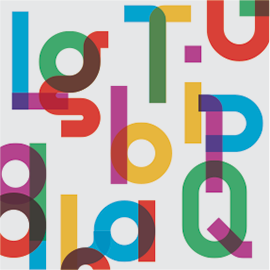Sarah Guerra – Director, Diversity & Inclusion
Being a parent is an emotional roller coaster presenting joy and challenge in pretty equal measure. As the parent of four children (2 step and 2 I birthed), I am constantly in awe of their openness and adaptability to learning new things, and just how quickly they can surpass me in their knowledge and understanding. I was fascinated, and a little taken aback, when my 13 year old daughter, Kaela, explained the concepts of gender as she understood them including the panoply of letters that could make up what I have traditionally referred to as ‘LGBT’:
 LGBTQQIP2SA – Lesbian, Gay, Bisexual, Transgender, two Q’s queer and questioning, I for Intersex, people, P for Pansexual, 2S for Two-Spirit, A for Asexual with any orientation.
LGBTQQIP2SA – Lesbian, Gay, Bisexual, Transgender, two Q’s queer and questioning, I for Intersex, people, P for Pansexual, 2S for Two-Spirit, A for Asexual with any orientation.
My initial reaction was to poo poo her! Those aren’t things! This was quickly followed by a degree of panic – how on earth do I do my job if there are so many more letters?
What I now recognize is that this was an opportunity for me to realise that my understanding of the world and people must continuously change and develop. As a diversity and inclusion professional I can’t and shouldn’t ever feel that there isn’t more for me to learn and understand about individuals and their experience of the world, work and study.
For those who are looking to expand on their own learning, I found this Stonewall resource on Trans Inclusion really helpful, and of course we have our own excellent Trans Matters guidance which is specific to King’s.
Of these resources, the following passage resonated particularly for me:
There is no universal experience of being trans. The Trans community is sometimes characterised as being individuals who wish to transition from one gender to another. In reality, the wide spectrum of gender identity is complicated. Increasingly, people feel comfortable openly expressing themselves in other ways than simply male and female.
Making myself listen and really hear my daughter and others (I would highly recommend Trans Like Me by CN Lester) has been transformative in my learning and understanding. Following this conversation, I asked Kaela how she identified, to which she responded that she didn’t need to – ‘people don’t need labels these days’. I realised that my expectation of defined boundaries and need for labels is the way I have been taught to understand myself and interact in the world. The world has changed since I first learned about these things and there is a wider range of gender expression that I am yet to fully understand.
Equally I don’t have to tie myself up in knots – the law and King’s has made it simple for all of us.
The Equality Act 2010 says that we cannot discriminate against transsexuals– that is people whose gender identity differs from the gender assigned to them at birth. Kings Vision 2029 states we care about our learners on an individual basis and that we will design mainstream interventions that remove all forms of inequality in learner engagement, retention and success.
To be the inclusive, world class organisation such as King’s must work to understand the complexities of gender expression and fluidity, and the implications of this on personal, practical and organisational interactions and how we can ensure that everyone, regardless of their gender identity, feels equally valued and able to succeed.
To do this, we simply need to harness two key research and teaching skills that we already use every day at King’s, listening and thinking.